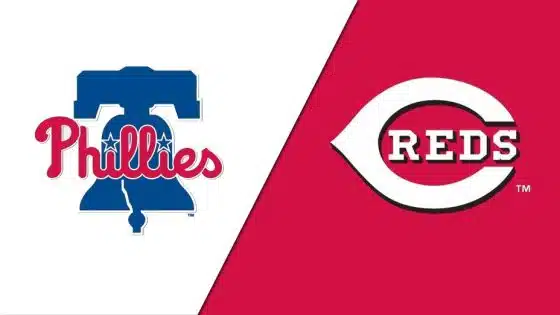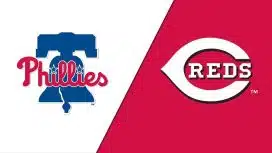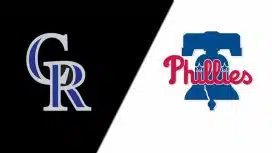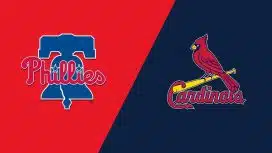By Matt Albertson, Historical Columnist
Philadelphia Phillies fans forget that Bobby Abreu was the bright spot for the Phillies during the Larry Bowa era – an outfielder who continually put up monster numbers but is still an afterthought in franchise history. No doubt, you, the reader, are scoffing at our ranking of Abreu above a few franchise centerpieces and a Hall of Famer. Make no mistake about it, Abreu was worth the price of admission in the lean years between Scott Rolen's departure and Jim Thome's acquisition/Ryan Howard's debut.
Abreu was signed by the Houston Astros as an amateur free agent in 1990. In 74 games with Houston between 1996 and 1997, Abreu slashed .248/.325/.362 with 3 home runs and 27 RBI. Houston left him unprotected in the expansion draft and he was picked up by the Tampa Bay Devil Rays in November 1997 and was immediately flipped to the Phillies for 1993 National League Championship member Kevin Stocker.
After the trade, Philadelphia Inquirer writer Jim Salisbury reported that one National League scout evaluated Abreu as a terrific prospect (rated 38th best prospect by Baseball America at the time). The scout said "Abreu is a good-looking outfielder. He throws well. The only question is if he'll hit with enough power. If he does that, they've got themselves a good player." Salisbury continued that Abreu's likely spot in the lineup was second in the order. Other scouts concurred with the positive assessment, citing Abreu's power in the minors and the speed on the base paths that he displayed at all levels. Others were more critical, suggesting that Abreu was a question mark for a small-market, rebuilding franchise that had moved on from that magical 1993 season. It was not a popular trade with the fanbase, who saw Stocker record his best season ever at the plate and in the field in 1996.
Needless to say, Abreu turned out to be the player that the Phillies hoped he would become. Stocker meanwhile finished his career in 2000 after eight years in the game as a part-time player who slashed .254/.338/.343. Abreu played 18 years overall and slashed .291/.395/.475 and belted 288 home runs, hit 574 doubles, drove in 1,363 runs and stole 400 bases. Like I said, Abreu was an offensive monster. With the Phillies, Abreu bridged the club's dark and lean Francona era with the thrilling Charlie Manuel era, before he was traded to the New York Yankees in 2006.
Career Accomplishments
- Two-time All-Star (2004 and 2005)
- 2005 National League Gold Glove Award winner
- 2004 Silver Slugger Award winner
- 2005 All-Star Game Home Run Derby champion
*Awards were not factored into the formula
Career-Defining Moment
Abreu only played in five postseason series, four of which were after he turned 32 years old. So, there isn't a large do-or-die pool from which to draw from. Circling back to that National League scout's comment from 1997, some wondered if Abreu could hit for power. In 2005, Abreu demolished Miguel Tejada's All-Star Game Home Run Derby home run record, hitting 41 total home runs during the event. (He hit 30 home runs in the regular season).
Reasoning for ranking
Abreu scored 42 points in our formula. He totaled 59.9 WAR, averaging 3.32 WAR over his 18 seasons. He had 12 seasons of 2+ WAR and seven seasons at 5+ WAR, totaling 33 points. His .870 OPS is 113th all-time, 2,470 hits are 106th all-time, 574 doubles are a striking 24th most all-time, 288 home runs are 156th all-time, and 1,363 RBI are 89th all-time, totaling nine points.
Abreu scored a six out of 10 on our subjective importance scale because he was the centerpiece of the lineup between National League pennants.
Explanation of scientific formula
The player rankings formula combines both traditional and advanced statistics/metrics and assigns a point total to each category.





